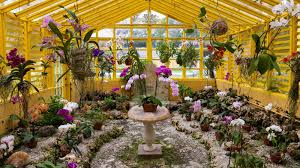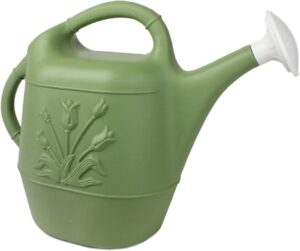Orchid Care and Winter Vegetable Gardening Guide
Orchid care, Winter vegetable gardening, Homegrown delight, Orchid health, Winter planting, Vegetable garden tips, Gardening journey, Horticultural bliss
Orchid Care Guide and Winter Vegetable Gardening
Introduction:
Embracing the world of horticulture can be an incredibly rewarding journey, whether you’re caring for delicate orchids or tending to a flourishing vegetable garden. In this article, we’ll explore the care and nurturing of orchids, offering specific and actionable tips to ensure your plant thrives. Additionally, we’ll discuss the vegetables you can sow in your backyard during the chilly months of November and December, so you can enjoy the benefits of a fresh, homegrown harvest.
1. Nurturing Your Precious Orchid – A Delicate Beauty
- The Ideal Environment for Orchids: To start, it’s essential to understand that orchids are tropical plants. They thrive in a warm and humid environment. Ensure they receive indirect sunlight, but never expose them to direct sunlight, as it can scorch their delicate leaves.
- Light: Orchids need bright, indirect light. A south- or east-facing window is ideal. Avoid placing your orchid in direct sunlight, as this can scorch the leaves.
- Watering Techniques: Orchids despise overwatering. Allow the top inch of the potting mix to
 dry out between watering sessions. Use a spray bottle to mist the leaves regularly, mimicking their natural habitat’s humidity. https://amzn.to/3txmGz4
dry out between watering sessions. Use a spray bottle to mist the leaves regularly, mimicking their natural habitat’s humidity. https://amzn.to/3txmGz4 - Humidity: Orchids prefer humid conditions. If your home is dry, you can increase the humidity around your orchid by misting it regularly or placing it on a pebble tray.
-

Ceramic Pot https://amzn.to/3ZX1u1z Choosing the Right Pot and Soil: Select a pot with proper drainage holes and a well-draining orchid-specific mix. Orchids should be repotted every 1-2 years, or when the potting mix breaks down. Use a special orchid potting mix, which is made from bark and other materials that allow for good drainage.
- Fertilizing Your OrchidFeed your orchid with a balanced, water-soluble fertilizer. Use it sparingly during the growing season, typically from spring to early autumn.
2. Orchid Health and Well-Being
- Recognizing Common Orchid Ailments: Be vigilant for signs of pest infestations, root rot, and yellowing leaves. Early detection is key to maintaining your orchid’s health.
- Pruning and Deadheading: Regularly prune spent blooms and dead or damaged leaves to encourage new growth and maintain an attractive appearance.
3. Novice Mistakes to Avoid
- Overcomplicating Care: Remember, orchids are hardy plants if given the right care. Don’t overcomplicate their care by excessive fertilization or watering.
- Neglecting Temperature Fluctuations: Orchids are sensitive to temperature changes. Avoid placing them near drafts, heaters, or air conditioners.
4. Additional Tips to Keep Your Orchid Healthy and Thriving
- Remove any dead or dying flowers or leaves.
- Inspect your orchid regularly for pests and diseases.
- If you notice any pests or diseases, treat them immediately.
- Keep your orchid away from drafts and cold air.
5. Winter Vegetable Gardening – A Homegrown Delight
- Suitable Vegetables for Winter Planting
- In November and December, you can sow a variety of vegetables such as Carrots
- Cauliflower
- Celery
- Collard greens
- English peas
- Garlic
- Kale
- Lettuce
- Onions
- Radishes
- Spinach
- Swiss chard
- Turnips
These cold-hardy crops can withstand the cooler temperatures.
- Proper Soil Preparation
Ensure your garden soil is well-drained and enriched with compost. This provides a healthy environment for your winter vegetables to thrive.
- Protection from Frost
Protect your crops from frost by covering them with frost cloth or bringing potted plants indoors during extremely cold nights.
Conclusion
Caring for orchids and nurturing your vegetable garden during the winter months can be a deeply fulfilling experience. As a horticulturist, I encourage you to embrace these challenges and joys. Remember, patience and love are the keys to a successful journey in horticulture.
5. Frequently Asked Questions
Q 1. How often should I water my orchid during the winter months?
A. During the winter, water your orchid less frequently, approximately every 2-3 weeks. Adjust the frequency based on your home’s specific conditions.
Q 2. Can I grow orchids and vegetables in the same garden?
A . It’s generally best to keep orchids separate from your vegetable garden, as their care requirements differ significantly.
Q 3. What are some natural pest control methods for my vegetable garden?
A. To protect your vegetables naturally, consider using neem oil or companion planting with pest-repelling herbs.
Q 4. Can I grow vegetables in containers during the winter?
A . Absolutely, container gardening is a great option for growing winter vegetables. Just ensure the containers have proper drainage.
Q 5. Do I need to grow lights for my indoor orchids during the winter?
A . If your orchids don’t receive enough natural light, you can use grow lights to supplement their needs, especially during the darker winter months.
Get started on your horticultural journey today! Get Access Now and begin nurturing your orchids and growing delicious winter vegetables in your own backyard. Happy gardening!


